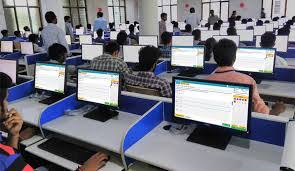News Investigators/ The West African Examinations Council (WAEC) for Port Harcourt Zone has advised schools to equip their Internet Computer Technology (ICT) centres according to WAEC standards to facilitate their smooth transition to the computer-based examinations.
Adeniran-Amusan Akim, WAEC Zonal Coordinator gave advice during a sensitisation programme on Thursday in Port Harcourt.
The sensitisation programme was organised by the Teadro Systems Ltd, the National Association of Proprietors of Private Schools, in partner with the Bank of Industry (BOI), Hewlett-Packard company, Lenovo and Canon.
Mr Akim said that the Computer-Based West African Senior School Certificate Examination (CB-WASSCE)would commence fully with the 2026 diet, emphasising the need for schools to adapt to the new format.
He noted that a sensitisation programme had begun in Abuja and would be extended to all states.
Mr Akim expressed confidence that Rivers would pioneer the computer-based examination, citing the state’s remarkable interest and turnout during the sensitization campaign.
He acknowledged that WAEC had designated specific centres for schools that might not meet the required standards for the computer-based exams.
Mr Akim advised schools wishing to conduct the exams within their premises to ensure they meet WAEC’s requirements, including necessary equipment and infrastructure.
“The computer-based exam system is here to stay, and schools must adapt to the new format, and take necessary steps to comply with WAEC,” he said.
Similarly, Lucky Njoagwuani, Head of Examination, WAEC, said that the council had been conducting successful computer-based exams for private candidates over the past two years.
“We started with the fourth series of our private candidate exam about two years ago, and it was successful,
“This year’s private candidate exam, second series, is fully computer-based with no option for pen and paper, invariably, next year’s school candidate exam will be fully computer-based as well,” he said.
Mr Njoagwuani mentioned some of the specific exam requirements for schools as 250 functional laptops with 10 per cent backups robust computer server with capacity to carry 250 systems concurrently.
He also mentioned a setup of Local Area Network (LAN), Adequate and functional air conditioners and lighting, uninterrupted power supply (UPS), a backup power generating set with minimum capacity of 40 kVA for 250 systems.
Others are CCTV cameras, and Provision for holding room or reception facility.
Mr Njoagwani highlighted the benefits of computer-based exams, including increased accessibility for candidates, reduction of paper and logistics costs.
Earlier, Sunday Jaja, the Chairman of National Association of Proprietors of Private Schools in Rivers, emphasised the importance of schools being updated on current happenings in the education sector.
Mr Jaja stated that the NAPPS collaboration with the Teadro was to provide schools with the necessary systems for CBT, including hardware and software solutions.
According to him, the owners of the schools should leverage on funding opportunities from the Bank of Industry to finance their projects during the transition to computer-based exams.
“We all know that technology is playing a vital role in modern education, this is why we brought this initiative to enable schools stay abreast of current trends and prepare students for the digital age,” Jaja said.
The chairman encouraged all stakeholders to take advantage of the BOI RAPID intervention loan and Federal Government MSME intervention fund because WAEC computer-based exams had come to stay.
The highlight of the event was the donation of a HP computer set, a canon printer machine, one Lenovo tablet phone, a keyboard and mouse to the winners of raffle draw organised by Teadro group to promote technological advancement in schools.
NAN


